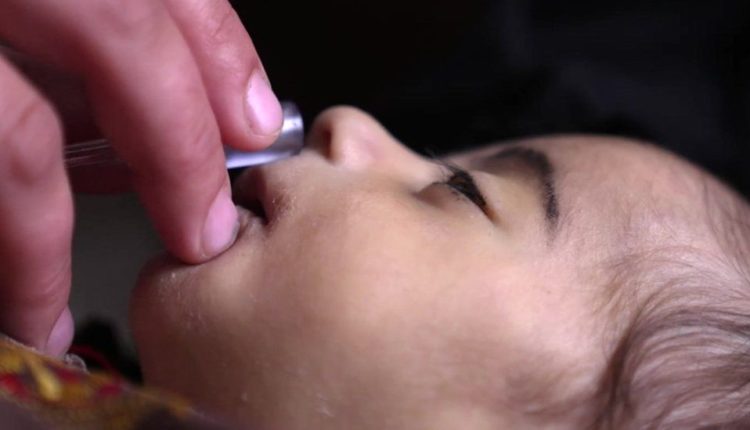Three-month-old Tayabullah is quiet and motionless. His mother Nigar moves the oxygen pipe away from his nose and puts a finger below his nostrils to check if she can feel him breathing.
She begins to cry as she realises her son is fading.
At this hospital in Afghanistan, there is not a single working ventilator.
Mothers hold oxygen tubes near their babies’ noses because masks designed to fit their small faces are not available, and the women are trying to fill in for what trained staff or medical equipment should do.
Every day, 167 children die in Afghanistan from preventable diseases, according to the UN children’s fund Unicef – illnesses that could and should be cured with the right medication.
It is a staggering number. But it’s an estimate.
And when you step inside the paediatric ward of the main hospital in the western province of Ghor, you will be left wondering if that estimate is too low.
Multiple rooms are full of sick children, at least two in each bed, their little bodies ravaged by pneumonia. Just two nurses look after 60 children.
In one room, we saw at least two dozen babies who appeared to be in a serious condition. The children should have been continuously monitored in critical care – impossible at this hospital.
Yet, for the million people who live in Ghor, this basic facility is still the best equipped public hospital they can access.
Public healthcare in Afghanistan has never been adequate, and foreign money which almost entirely funded it was frozen in August 2021 when the Taliban seized power. Over the past 20 months, we have visited hospitals and clinics across this country, and witnessed them collapsing.
Now the Taliban’s recent ban on women working for NGOs means it’s becoming harder for humanitarian agencies to operate, putting even more children and babies at risk.
Already defeated by a lack of resources, medics at the Ghor hospital used whatever little they had to try to revive Tayabullah.
Dr Ahmad Samadi was called in to check his condition, fatigue and stress visible on his face. He put a stethoscope to Tayabullah’s chest – there was a faint heartbeat.
Nurse Edima Sultani rushed in with an oxygen pump. She put it over Tayabullah’s mouth, blowing air into it. Then Dr Samadi used his thumbs to perform compressions on the boy’s tiny chest.
Watching on looking stricken was Tayabullah’s grandfather Ghawsaddin. He told us his grandson was suffering from pneumonia and malnutrition.
“It took eight hours on rubble roads to bring him here from our district Charsadda,” Ghawsaddin said. The family, who can only afford to eat dry bread for meals, scraped together money to pay for the ride.
For half an hour, the efforts to revive his grandson continued. Nurse Sultani then turned towards Nigar and told her Tayabullah had died.
The sudden silence which had enveloped the room was broken by Nigar’s sobs. Her baby boy was wrapped in a blanket and handed over to Ghawsaddin. The family carried him home.
Tayabullah should be alive – every disease he had was curable.
“I’m also a mother and when I saw the baby die, I felt like I’ve lost my own child. When I saw his mother weeping, it broke my heart. It hurt my conscience,” said Nurse Sultani, who frequently does 24-hour shifts.
“We don’t have equipment and there is a lack of trained staff, especially female staff. When we are looking after so many in serious conditions, which child should we check on first? There’s nothing we can do but watch babies die.”
Source: BBC


Comments are closed.